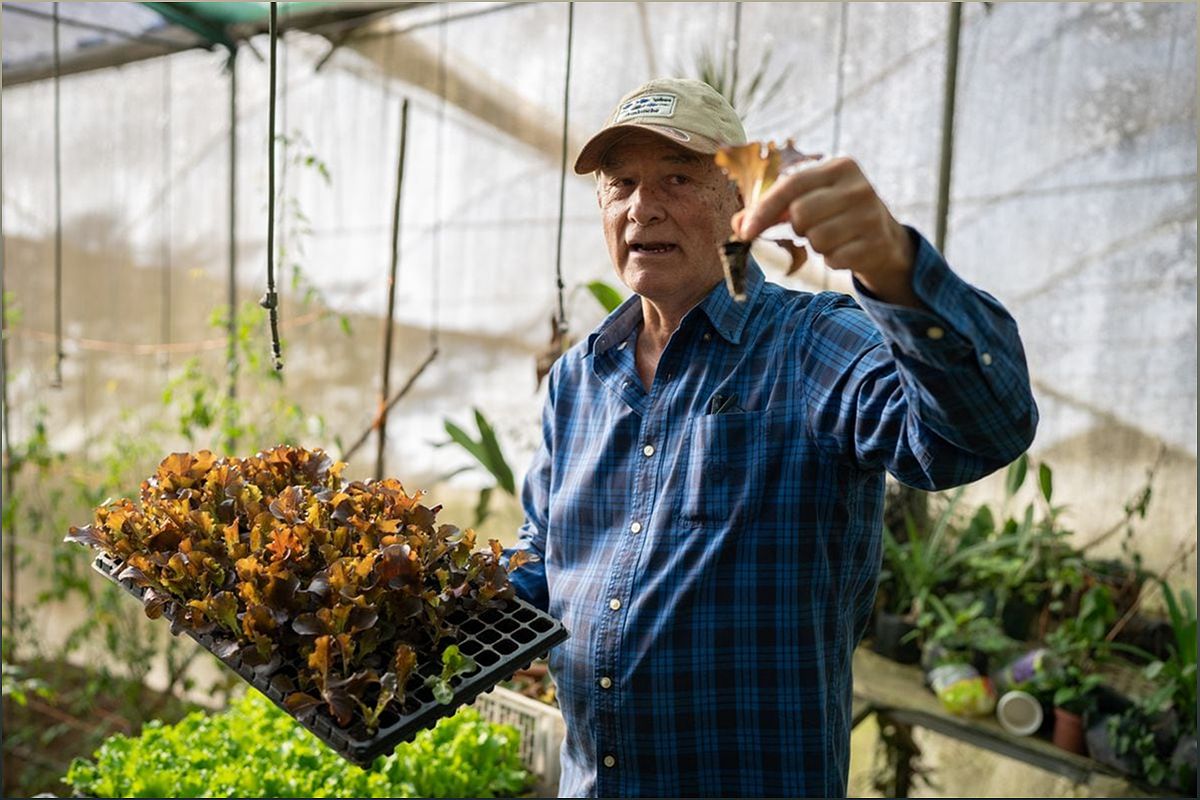Costa Rica’s organic farmers face challenges in a predominantly conventional agricultural landscape. With only 1.9% of farmed area dedicated to organic farming, the dominance of conventional agriculture with agrochemicals poses health risks and environmental concerns. Despite obstacles such as high certification costs and unfair competition, organic farmers like Tigre and Hannia remain committed to sustainable practices and hope to inspire others to embrace organic agriculture.
- Costa Rica's Agricultural Landscape: Conventional Dominance and Organic Challenges
- The Impact of Excessive Pesticide Use in Costa Rica
- The Benefits of Organic Farming: A Natural and Harmonious System
- Challenges Faced by Organic Farmers in Costa Rica
- Promoting Organic Agriculture in Costa Rica: Learning from Denmark
- Conclusion: Embracing Sustainable and Organic Farming Practices
Costa Rica’s Agricultural Landscape: Conventional Dominance and Organic Challenges
Costa Rica, known for its commitment to ecological practices, faces a stark contrast in its agricultural landscape. While organic farming represents a mere 1.9% of the country’s farmed area, conventional farming with agrochemicals dominates 98% of the industry. This disparity poses significant health risks and environmental concerns.

( Credit to: English )
Tigre and Hannia, a couple of organic farmers in Oreamuno, Costa Rica, serve as an example of the challenges faced by organic farmers in this predominantly conventional agricultural landscape. Despite their success in cultivating nearly 70 different crops on their Rinconcito Orgánico Irazú farm, they stand out amidst a sea of conventional farms that lack nutrients and suffer from soil erosion.
The Impact of Excessive Pesticide Use in Costa Rica
Costa Rica, despite its reputation for ecological practices, has the highest per-acre pesticide use in the world, averaging 51.5 pounds (23.4 kilos) of pesticide per hectare. This excessive pesticide use poses significant health risks, as evidenced by the contamination of drinking water in two towns in Cartago province in 2023. The ban on the carcinogenic pesticide chlorothalonil in November of that year came after years of pressure from environmentalists.
The Benefits of Organic Farming: A Natural and Harmonious System
Organic farming, in contrast to conventional agriculture, emphasizes the maximization of natural resources through circular agriculture methods. Tigre and Hannia’s organic farm showcases the benefits of organic practices, evident in the thriving strawberries with their delicious and tender flavor. Their approach goes beyond chemical avoidance, incorporating minimal tillage, homemade fertilizer, rainwater harvesting, and crop grouping to create a natural and harmonious system.
Challenges Faced by Organic Farmers in Costa Rica
Tigre and Hannia’s organic farm, like many others in Costa Rica, is not immune to external factors such as climate change and unstable prices. The recent prolonged drought in Costa Rica has significantly depleted their water reserves. Additionally, certified organic producers face obstacles such as high certification costs and unfair competition within the organic sector.
Despite these challenges, Tigre, Hannia, and other organic farmers remain committed to their principles and aim to convince other farmers of the vulnerabilities of conventional farming. They advocate for the value of organic farming, which provides healthier and safer food options.
Promoting Organic Agriculture in Costa Rica: Learning from Denmark
While organic farmers in Costa Rica struggle to compete with the low prices of conventional agriculture, countries like Denmark provide subsidies and support for organic producers. As a result, 90% of Denmark’s crops are organic. Costa Rica, on the other hand, heavily relies on agrochemicals and fails to adequately promote organic agriculture.
Conclusion: Embracing Sustainable and Organic Farming Practices
Costa Rica’s organic farmers, like Tigre and Hannia, continue to champion sustainable and environmentally friendly practices. Despite the challenges they face in a predominantly conventional agricultural landscape, they remain steadfast in their commitment to organic farming and hope to inspire others to embrace this harmonious approach to agriculture.
